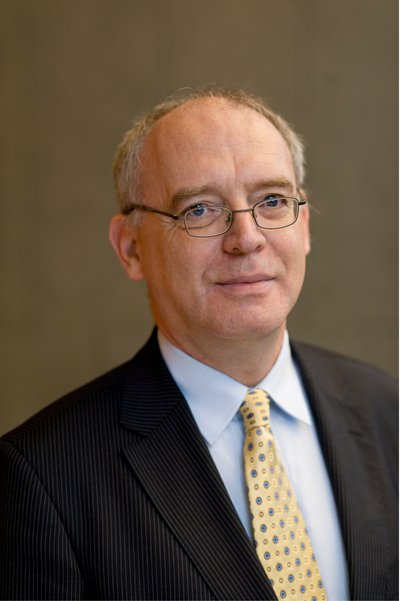14 Sep 2016
“Even world-class programmes need to evolve”
Students are much more interested in international investment law and policy than they were even five years ago.
Peter Van den Bossche assumed the post of Director of Studies at the World Trade Institute on 1 July. Here he talks about his association with the WTI, the benefits of studying at the Institute, and the need to adapt courses to changing times.
Congratulations on becoming Director of Studies. You have had a long association with the WTI. Did this seem like a natural progression?
Peter Van den Bossche: I have indeed been associated with the WTI since MILE 2 and I’ve taught on it almost every year since. I always looked on the WTI as the place where I would like to be academically involved full-time. So it’s a natural progression from coming here as a lecturer to joining the staff full-time. But it is also a continuation of what I have been doing professionally for the last seven years and that is a 100 percent focus on international trade law and policy in my capacity as member of the WTO Appellate Body. My eagerness to join the staff at the WTI had a lot to do with my wish to continue focusing on international economic governance.
As you said, you are currently still a member of the WTO Appellate Body. How are you managing to juggle both roles?
PVdB: My second and last term of four years will come to an end in December 2017. The period between now and the end of my WTO Appellate Body membership will be a very difficult time because we expect 2017 to be one of the busiest years ever at the Appellate Body, with appellate proceedings in EC – Airbus (Art. 21.5), US – Boeing (Art. 21.5), Australia – Plain Packaging, and a number of smaller but equally important cases. For that reason I will be at the WTI on a mere 25 percent basis until the end of 2017. I am very much looking forward to joining the WTI on a full time basis in January 2018.
What are your top priorities as Director of Studies?
PVdB: I think the WTI has great programmes, first of all obviously the MILE, which is quite unique and has world class. But like all programmes of this kind it has to evolve to meet new challenges. This can be the challenge of competition from ‘rival’ programmes, the challenge of keeping tuition fees affordable and ensuring that sufficient scholarships are available, and the challenge of adapting to the changing interests of students and demands on the job market. With regard to the latter, while students definitely remain very interested in international trade law and policy, in recent years they have also become interested – much more so than even five years ago - in international investment law and policy as well as other aspects of international economic governance. It is a challenge to make sure that the programmes that we offer correspond to those things for which there is a demand as well as a need.
So what changes can we expect to see in the MILE?
PVdB: A good measure of modesty on my part would be appropriate! The MILE is a great programme, has been that for many years and still is. One has to build on what is already there. But I think we can, and we will, be doing more in terms of marketing the programme, making people aware of it, and we will have to have another look at the topics that we cover.
For anyone considering joining the MILE programme, what would you say are the reasons for choosing it – why MILE?
PVdB: I think what makes the MILE programme – and some of our other programmes, such as the Summer Academy – different from programmes offered elsewhere is the interdisciplinary approach to the study of international economic governance. Students get to study not just the law, or economics, or politics of international economic relations, but the law and economics and politics of international economic relations. Young people who want to make a career in the field of international economic relations really should be looking for a combination of these three pillars of competence that you need in order to succeed in this field. For example, you may be a trained lawyer and you may end up a trade lawyer, but a good understanding of the economics and the international relations aspects of trade is very helpful. It makes of a good trade lawyer an excellent trade lawyer. That’s why I’m so enthusiastic about the MILE programme.
So for future students, this programme in its diversity is the right preparation for a career in this field. True, it’s not easy. The lawyers struggle with the economics, the economists struggle with the law, and the political scientists may struggle with both! But it doesn’t have to be easy - you learn when things are difficult.
Further info
Van den Bossche, Peter L.H.


